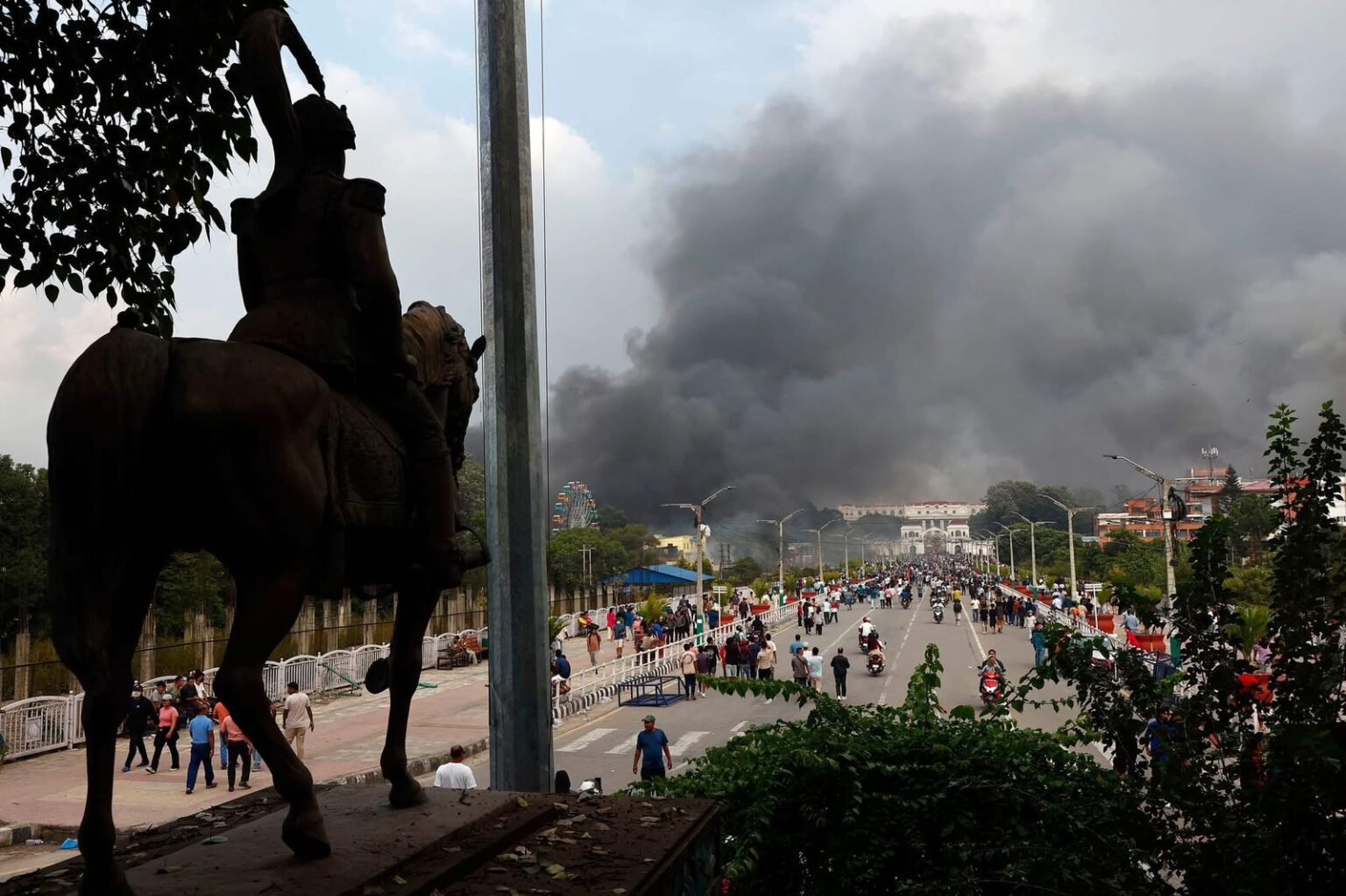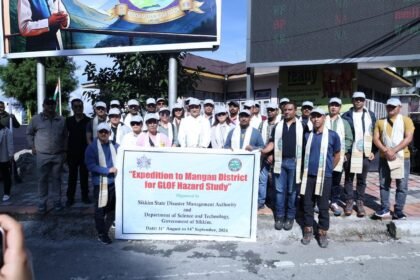Kathmandu, Sept 10 — Soldiers guarded Nepal’s parliament and patrolled deserted streets on Wednesday as a strict curfew came into force across the capital following two days of intense anti-corruption protests that led to the resignation of Prime Minister K.P. Sharma Oli.
What began as a digital protest against a controversial social media ban escalated into one of the deadliest uprisings in recent Nepali history. The ban, announced last week, was revoked after nationwide outrage, but not before violence erupted on the streets of Kathmandu.
By Wednesday, the Ministry of Health confirmed that 30 people had died and 1000 had been injured in clashes between protesters and police, who responded with tear gas and rubber bullets. The capital remains under a night curfew from 5 p.m. to 6 a.m., with all non-essential movement strictly prohibited.
Parliament, Government Buildings in Flames
The heart of the unrest was the parliament complex, where protesters set fire to the main hall on Tuesday. Army firefighters worked tirelessly to contain the flames, but by Wednesday, the damage was done.
“I have been informed by the parliament security chief that the fire has destroyed the entire infrastructure. Nothing is left,” said Ekram Giri, spokesperson for the lower house of parliament.
Burnt vehicles, twisted metal, and piles of debris surrounded the area, painting a grim picture of the destruction. TV footage also showed several youth volunteers and community members cleaning up the area, removing rubble and attempting to restore normalcy.
Protesters also torched multiple government properties, including the Supreme Court, ministerial offices, and the private residence of Prime Minister Oli, whose resignation on Tuesday night appeared to calm the unrest—at least temporarily.
Army Steps In to Restore Order
With the streets largely empty, armoured vehicles maintained a watchful presence across Kathmandu. Firefighters continued to battle blazes in different parts of the city while army and police personnel cleared roadblocks and debris.
“We are trying to normalise the situation first,” said Army spokesperson Raja Ram Basnet. “We are committed to protecting the life and property of the people.”
The situation escalated further when inmates at Dilli Bazar Jail set fire to the facility, attempting a mass escape. Security forces quickly regained control, preventing further chaos.
Airport Reopens, Flights Resume
Tribhuvan International Airport, which had suspended operations for more than 24 hours due to the unrest, reopened on Wednesday. The Civil Aviation Authority of Nepal advised passengers to check with their airlines regarding revised flight schedules.
A New Beginning: Youth Lead Cleanup and Hopeful Rebuilding
While the violence has subsided, a new phase of civil movement appears to be emerging. Youth volunteers, many of whom participated in the protests, have now taken to the streets—this time, to rebuild.
“We fought the corrupt system yesterday, we are clearing the streets today, and tomorrow we will build a strong, free, and democratic Nepal,” said Arajan Bishtha, a young protester sweeping debris near Singha Durbar.
“What Gen Z did yesterday was necessary. What we are doing today with the Army is equally important to rebuild Nepal,” added a former army official now working alongside civil society groups.
- SA Report





